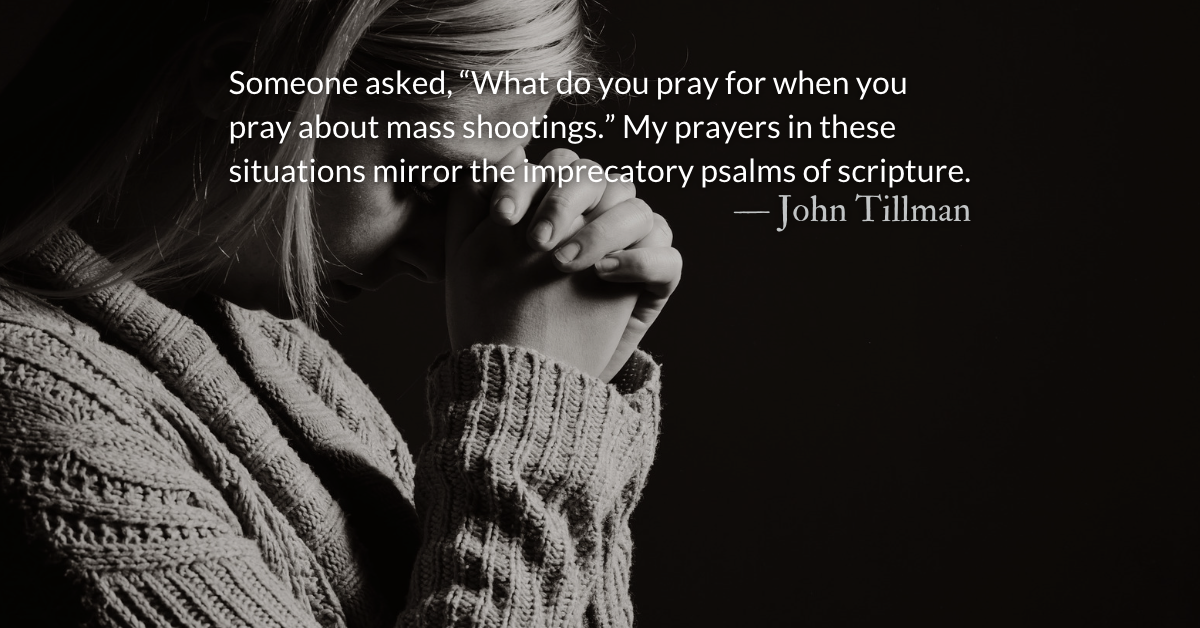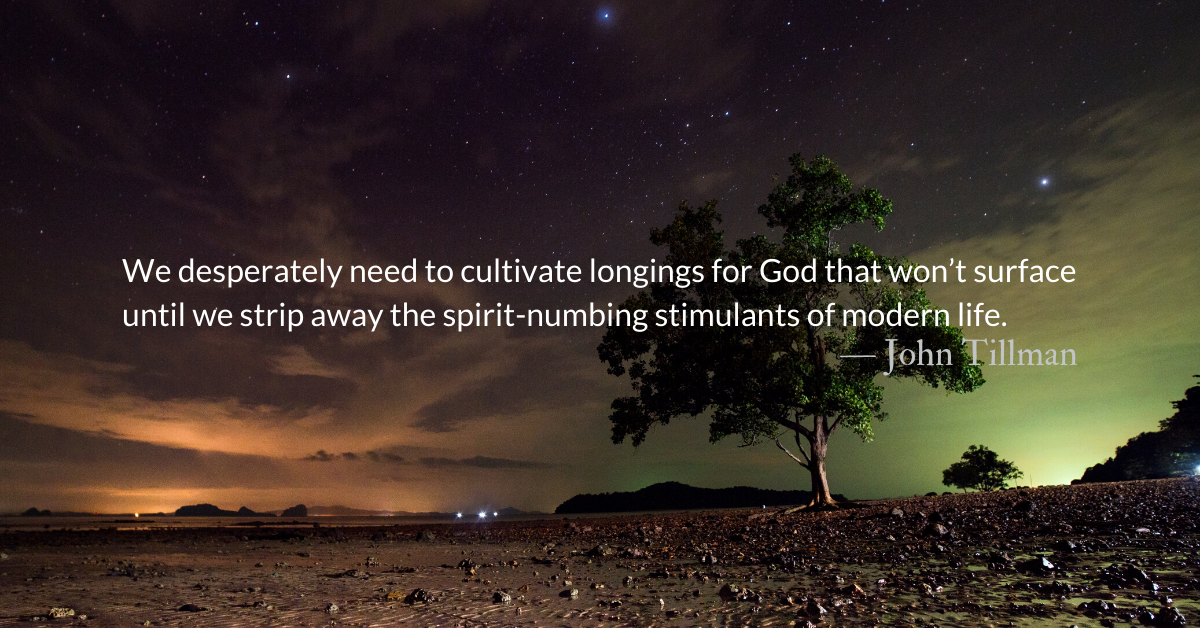Scripture Focus: Galatians 6.7-10
7 Do not be deceived: God cannot be mocked. A man reaps what he sows. 8 Whoever sows to please their flesh, from the flesh will reap destruction; whoever sows to please the Spirit, from the Spirit will reap eternal life. 9 Let us not become weary in doing good, for at the proper time we will reap a harvest if we do not give up. 10 Therefore, as we have opportunity, let us do good to all people, especially to those who belong to the family of believers.
Reflection: An Imprecatory Psalm for Mass Shootings
By John Tillman
In the Dallas-Fort Worth metroplex, when you ask how far away something is, we answer in minutes, not miles. Allen, Texas is about a 40-minute drive from us but this weekend it seemed much closer. As I tried to write today’s devotional the morning after the Allen shooting my thoughts kept returning to it.
I went to church after writing the 1st draft of this. As normal, I paused to think about what I should do in case of a shooting. Every Sunday, I think about the exits, the likely direction of an attack, and what, if anything, I could do other than help people escape.
This shouldn’t be normal.
I was a student at Southwestern Baptist Theological Seminary when the shooting at Wedgewood Baptist Church happened on September 15, 1999. I did not know any of the victims personally but one of them was in a class with me. I remember stepping out of the memorial service in SWBTS chapel to get tissues from the bathroom and pass them out to those weeping near me. It wasn’t enough for me to weep with the weeping, or pray without doing something.
Shootings weren’t normal then. Now they are so normal, we do nothing about them except pray.
Someone asked, “What do you pray for when you pray about mass shootings.” My prayers in these situations mirror the imprecatory psalms of scripture.
Perhaps this prayer is too raw or angry for you to pray. That’s okay. Pray your own prayer. The imprecatory psalms and our angry prayers in crisis are still valuable to God:
An Imprecatory Psalm for Mass Shootings:
Jesus, be with the victims and their families.
Heal physical, emotional, and spiritual wounds.
God, may swift justice fall on attackers and accomplices.
“Kings” do not bear the sword for nothing.
May that sword swing and find its target.
May evil be punished in this world to the best of our ability.
Holy Spirit, convict those leaders who continue to do nothing in response to these crimes.
Afflict them with lack of sleep and lack of peace.
Do not listen to their prayers!
Turn your face away from them until they establish just laws that:
Prevent these events prior to their happening
Protect victims during these events, and
Prosecute those who contributed to these events afterward.
Throw your covering over us, Lord. Have mercy.
How long, O Lord? How long?
Divine Hours Prayer: The Greeting
To you I lift up my eyes, to you enthroned in the heavens.
As the eyes of servants look to the hand of their masters, and the eyes of a maid to the hand of her mistress,
So our eyes look to the Lord our God, until he shows us his mercy. — Psalm 123.1-3
– From The Divine Hours: Prayers for Springtime by Phyllis Tickle.
Today’s Readings
Numbers 17-18(Listen 6:58)
Galatians 6 (Listen 2:18)
Read more about Justice of God
Sometimes when we find penalties in the Bible harsh, it is because we have been fortunate enough to never suffer serious harm.
Read more about Praise God for the Justice of the Gospel
The psalms were artistic endeavors, not legal documents or court decisions. They are the cries of the victims, not the verdict of the judge.









